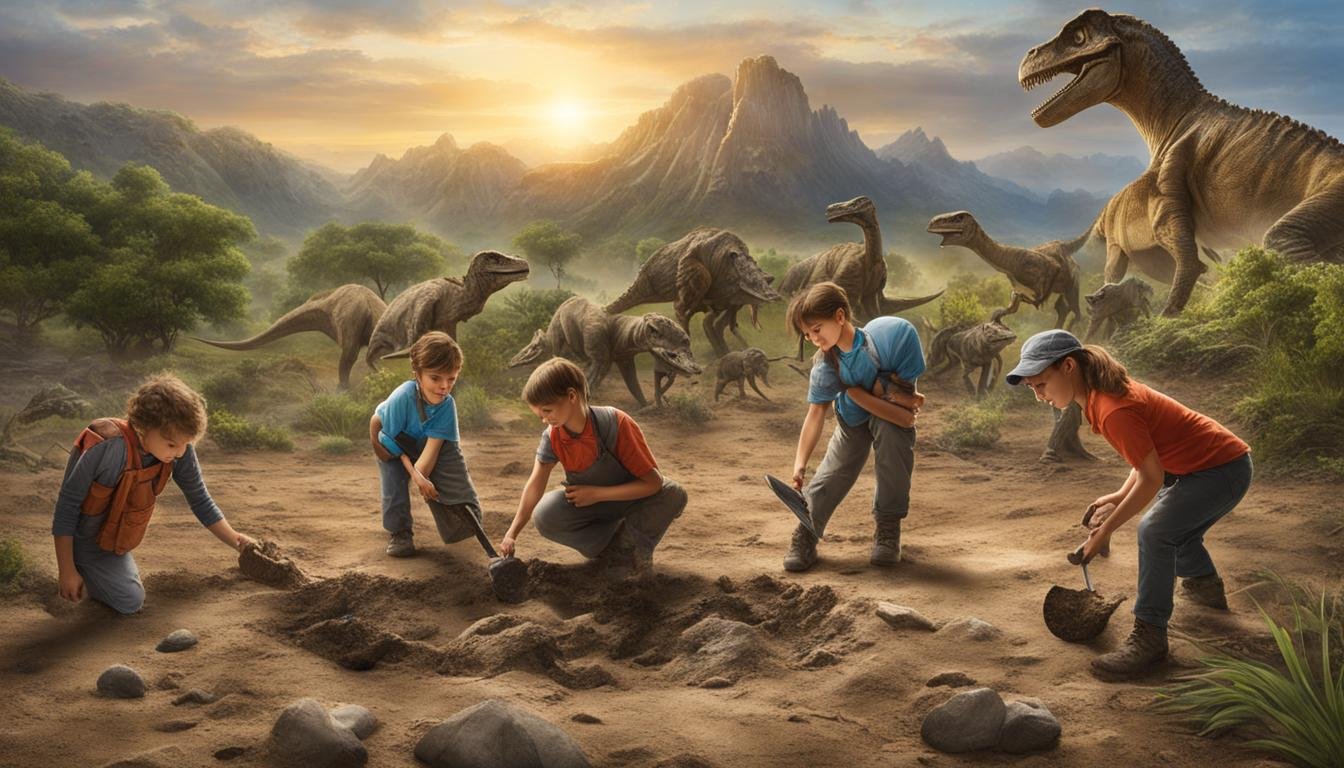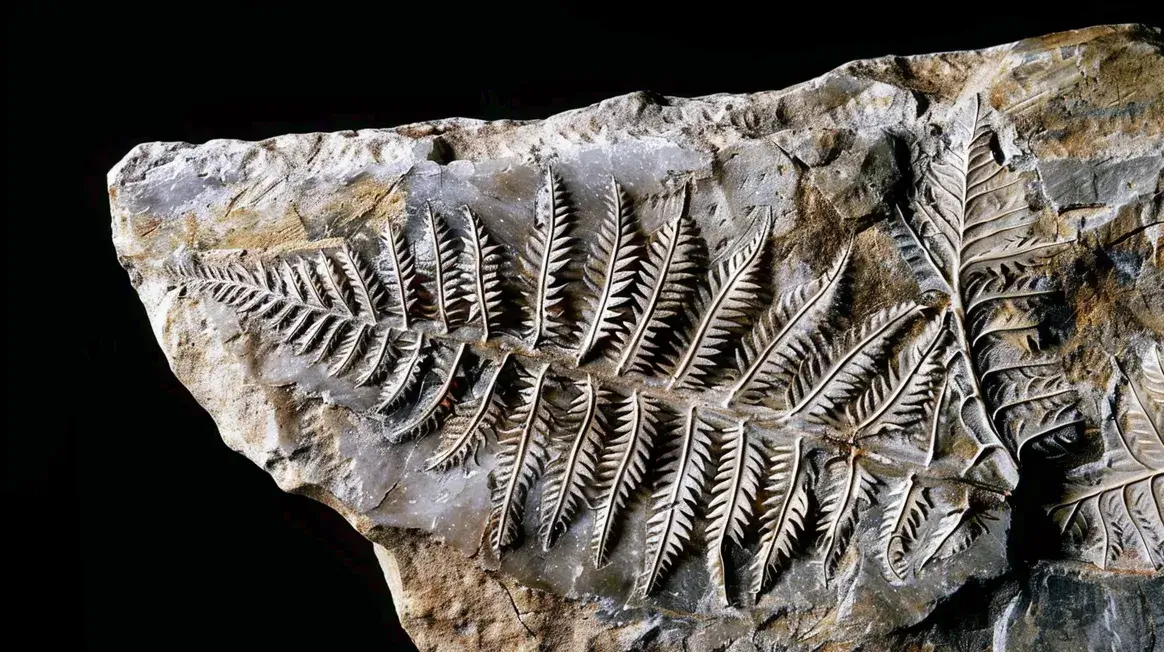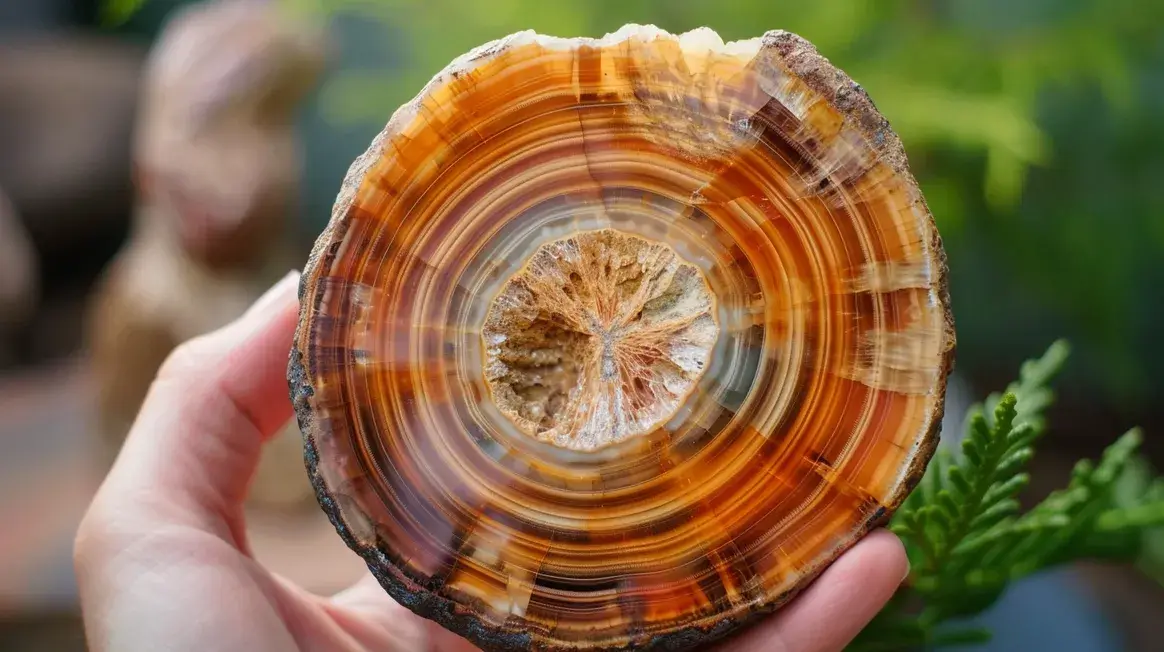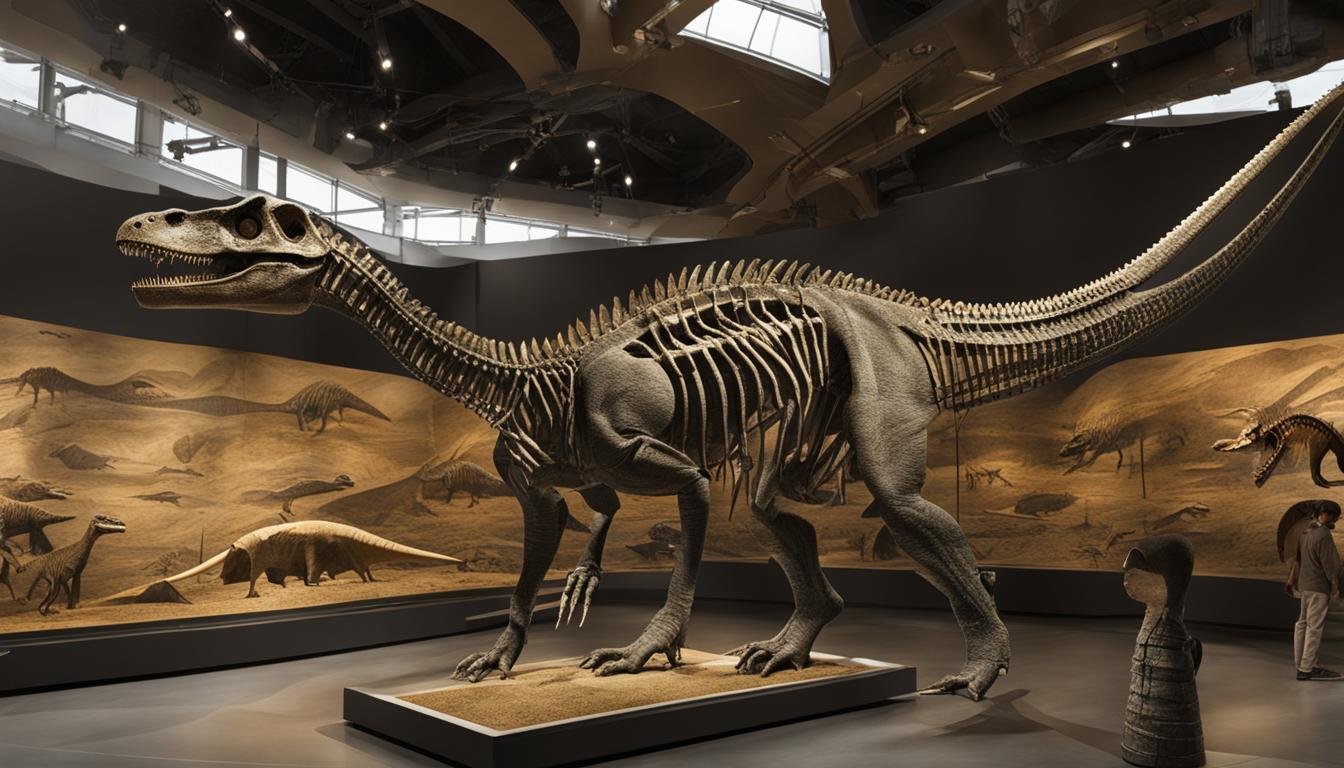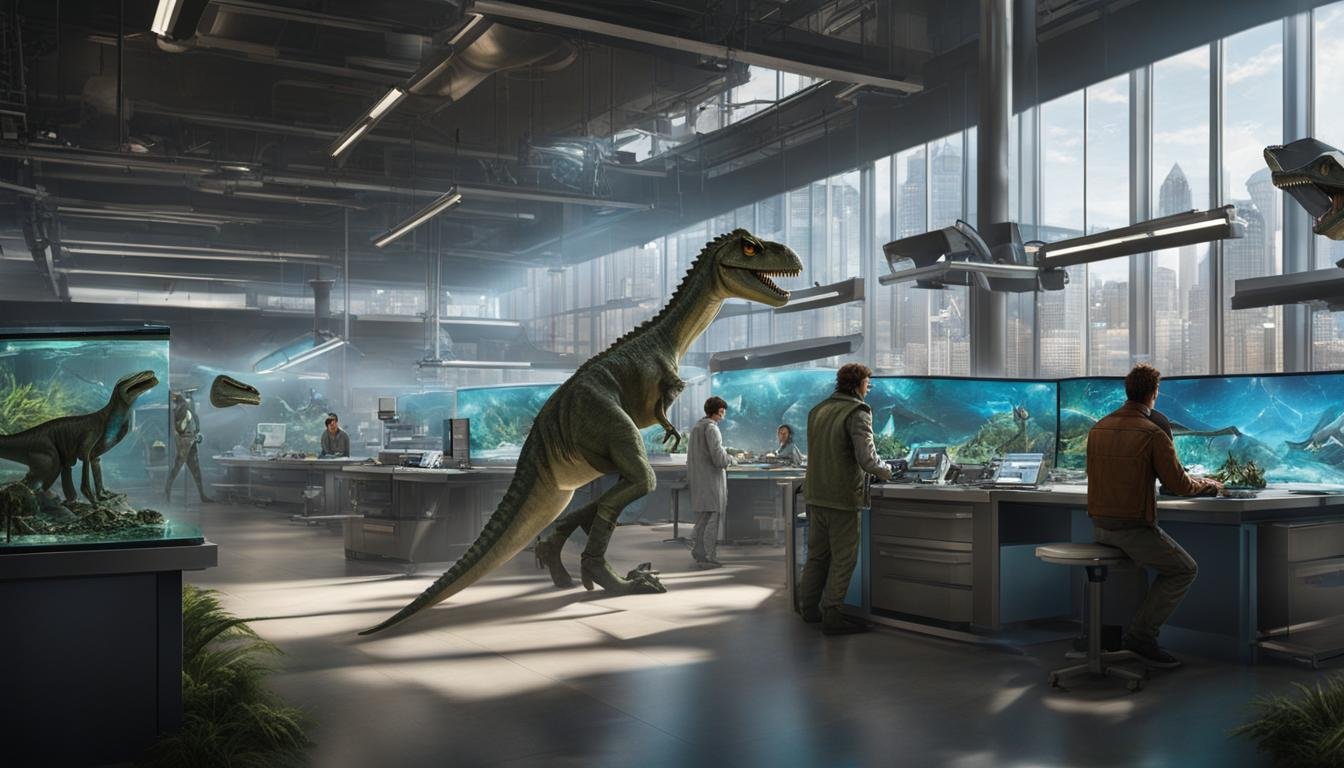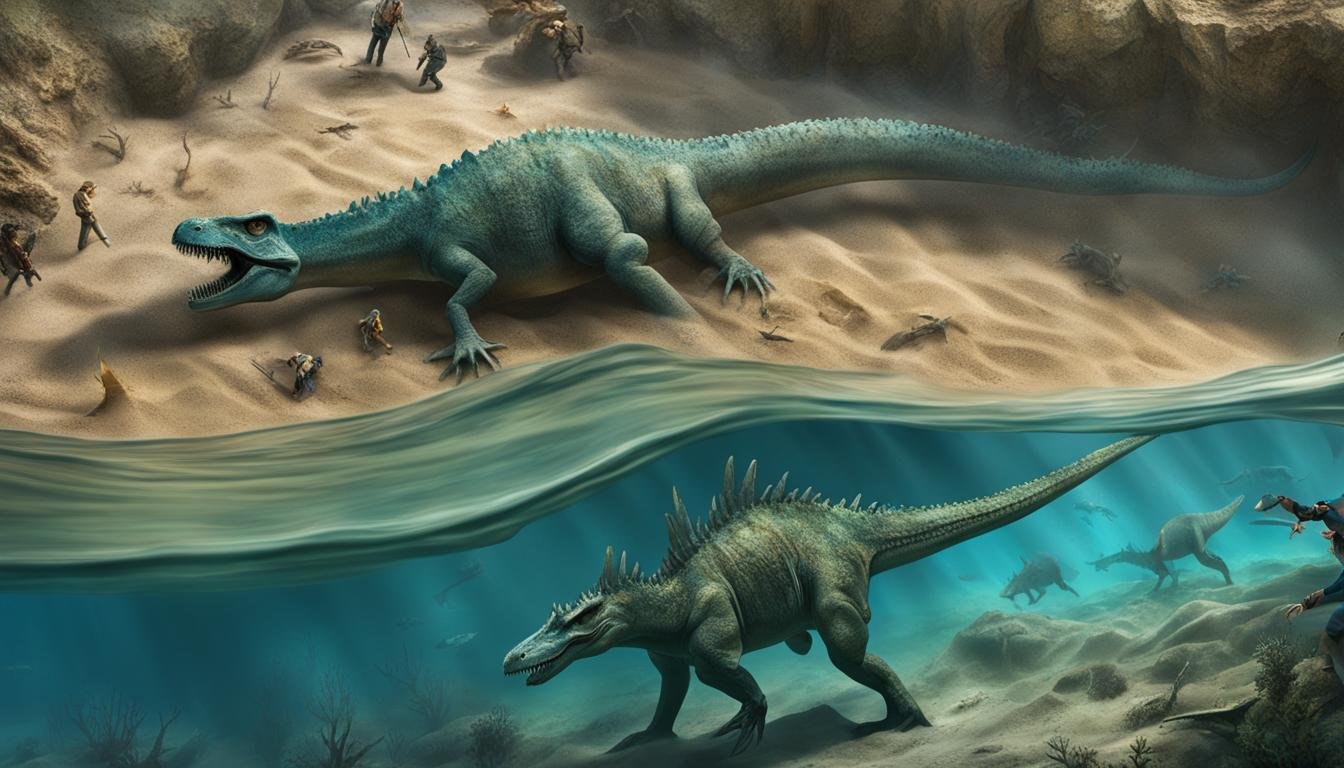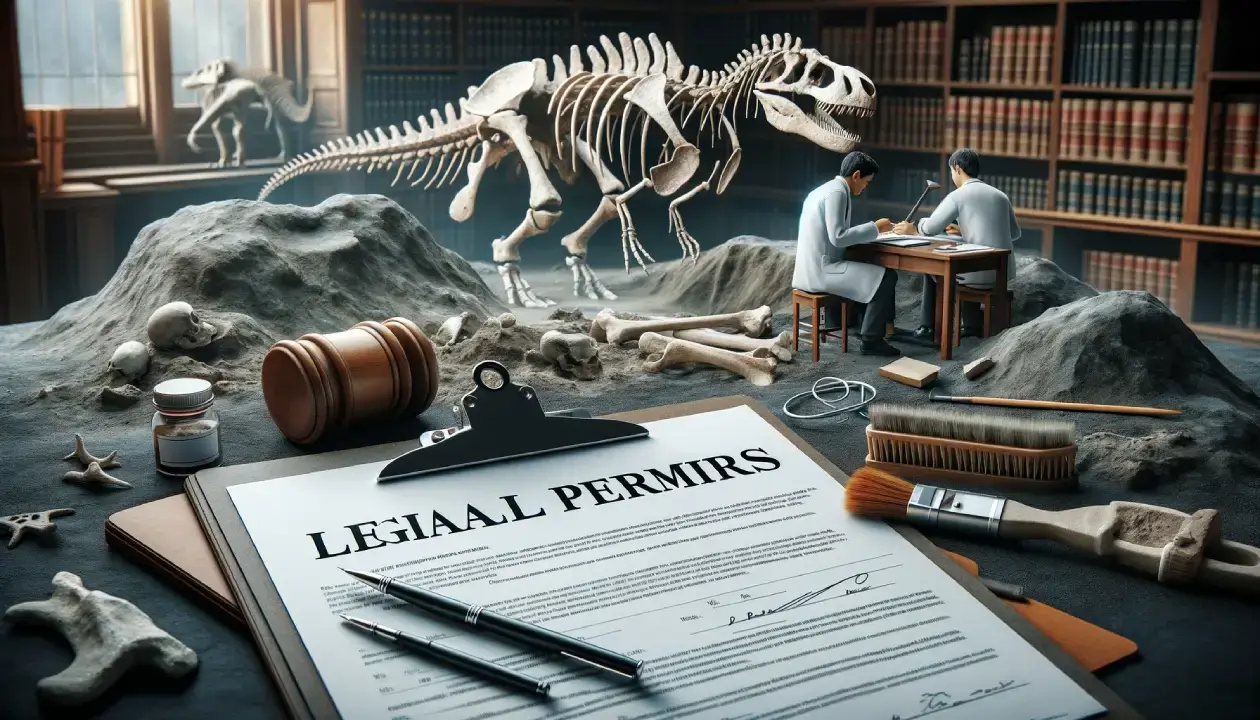Public participation in paleontology refers to the involvement of the general public in scientific research in the field of paleontology. Citizen science projects allow individuals of all skill levels and backgrounds to contribute to the advancement of scientific knowledge in paleontology. By participating in these projects, people can gather data, make discoveries, and advocate for science. It is a rewarding and educational way for the public to immerse themselves in the science behind paleontology.
| Section | Key Takeaways |
|---|---|
| Public Participation in Paleontology | – Involves public in scientific research in paleontology. – Citizen science allows data gathering, discoveries, and science advocacy. – Offers an educational experience in paleontology. |
| What is Citizen Science? | – Collaborative research involving the public. – Accelerates data collection and provides a vast network of participants. |
| Benefits of Citizen Science | – Offers hands-on learning experiences. – Creates a connection to the scientific community. |
| Benefits of Participating | – Allows contributions to the scientific community. – Provides unique learning and hands-on experiences. – Engages participants with the scientific process. |
| How to Get Involved | – Various paleontology projects available for public participation. |
| Citizen Science Project Databases | – Platforms like Zooniverse and SciStarter connect individuals to research projects. |
| Past Citizen Science Projects | – Projects like the Mastodon Matrix Project and Fossil Blitz 2016 involved public in paleontological research. |
| Designing for Public Participation | – Mobile apps like the FOSSIL App enhance public participation in paleontology. |
What is Citizen Science?
Citizen science refers to the active involvement of the general public in scientific research. It is a collaborative approach that allows individuals to contribute their time, skills, and knowledge to various fields of study, including paleontology. Through citizen science initiatives, people from all walks of life can participate in collecting data, making discoveries, and supporting scientific research.
Engaging the public in scientific research has numerous benefits. It not only accelerates the rate at which data is collected but also provides scientists with access to a vast network of volunteer participants. Citizen science projects in paleontology capitalize on the collective efforts of citizen scientists to gather important information about fossils, ecosystems, and the geological history of our planet.
By participating in citizen science, individuals can develop a deeper understanding and appreciation for scientific research in paleontology. The hands-on experience allows them to learn about the methods and techniques used in the field, contributing to their own personal growth and education. Citizen science also fosters a sense of ownership and connection to the scientific community, empowering individuals to actively participate in the advancement of knowledge in paleontology.
Benefits of Citizen Science:
- Accelerates data collection
- Provides access to a large network of volunteer participants
- Offers hands-on learning experiences
- Creates a sense of ownership and connection to the scientific community
By engaging in citizen science, individuals can contribute to scientific research, make meaningful discoveries, and play an active role in advancing knowledge in the field of paleontology. With its collaborative and inclusive nature, citizen science opens up new possibilities for broadening public involvement in scientific research and strengthening the relationship between scientists and the general public.
Benefits of Participating in Citizen Science
Participating in citizen science initiatives, particularly in the field of paleontology, offers several benefits. It provides opportunities for individuals to learn more about paleontology and the scientific process. By contributing to scientific research, participants can make meaningful contributions to the scientific community and help advance knowledge in the field. Engaging in citizen science is a rewarding and educational experience that allows people to deepen their understanding and appreciation of paleontology.
One of the key benefits of participating in citizen science is the opportunity to contribute to the scientific community. By collecting data, analyzing samples, or identifying fossils, participants can make valuable contributions that further scientific knowledge. Their efforts can lead to new discoveries, help researchers validate findings, and contribute to ongoing research projects. Citizen science allows individuals to actively participate in scientific research, making them part of the scientific community and fostering a sense of ownership and pride in their contributions.
In addition to contributing to the scientific community, participating in citizen science projects provides unique learning opportunities. The field of paleontology is complex and fascinating, and citizen science allows individuals to gain firsthand experience and knowledge in this field. Through training programs, workshops, and collaboration with experts, participants can acquire new skills, learn about different aspects of paleontology, and develop a deeper understanding of the natural world. Citizen science promotes lifelong learning and encourages individuals to become stewards of science and advocates for the preservation of our planet’s paleontological heritage.
| Benefits of Participating in Citizen Science |
|---|
| Contribution to scientific community |
| Learning opportunities |
| Hands-on experience in paleontology |
| Engagement with the scientific process |
| Opportunity to make meaningful discoveries |
Furthermore, citizen science provides an opportunity for individuals to engage with the scientific process. By actively participating in research projects, they gain insight into how scientific investigations are conducted and the methods used to collect and analyze data. This hands-on experience allows them to develop critical thinking skills, problem-solving abilities, and an appreciation for the rigorous nature of scientific inquiry. Citizen science promotes an understanding of the scientific method and encourages individuals to think critically and question the world around them.
How to Get Involved in Citizen Science Projects
Getting involved in citizen science projects in the field of paleontology is an exciting opportunity to contribute to scientific research and deepen your engagement with the subject. There are various projects available that welcome citizen scientists of all backgrounds and skill levels. Here are a few examples of paleontology citizen science projects that you can join:
American Phytosaur Project:
The American Phytosaur Project is a collaboration between paleontologists and citizen scientists to study the fossils of phytosaurs, ancient crocodile-like reptiles. Participants can assist in identifying and cataloging fossils, as well as analyzing geological data. This project provides a unique opportunity to contribute to understanding the evolutionary history of these fascinating creatures.
Macrostrat:
Macrostrat is a project that focuses on creating detailed geological maps using data provided by citizen scientists. By contributing to this project, you can help map out the distribution of fossils and geological formations, aiding in the understanding of paleontological and geological processes. It is a great project for those interested in both paleontology and geology. Check out Macrostrat’s website for more information.
Ice Age Fossils of Indiana:
The Ice Age Fossils of Indiana project involves the discovery and documentation of fossils from the Pleistocene Epoch, including the remains of Ice Age animals such as mammoths and mastodons. As a participant, you can engage in fossil hunting and documentation, as well as contribute to ongoing research on this fascinating period of Earth’s history.
| Project Name | Description |
|---|---|
| American Phytosaur Project | Study the fossils of phytosaurs to understand their evolutionary history |
| Macrostrat | Create detailed geological maps and analyze fossil distribution |
| Ice Age Fossils of Indiana | Discover and document fossils from the Pleistocene Epoch in Indiana |
These are just a few examples of the many citizen science projects available in paleontology. To get involved, you can visit the websites of these projects and sign up to become a citizen scientist. Through your participation, you can make meaningful contributions to scientific research, learn more about paleontology, and immerse yourself in the fascinating world of ancient life.
Citizen Science Project Databases
To find and join citizen science projects in the field of paleontology, there are several databases available that connect individuals with research opportunities. These databases serve as valuable resources for enthusiasts to contribute to scientific research and make meaningful discoveries. Two prominent databases in the field of citizen science are Zooniverse and SciStarter.
Zooniverse
Zooniverse is a platform that offers a wide range of research projects, including those related to paleontology. It allows individuals to engage in exciting projects by contributing to data collection, analysis, and interpretation. By participating in Zooniverse projects, citizen scientists can collaborate with researchers, make valuable contributions to scientific knowledge, and expand their understanding of paleontology.
SciStarter
SciStarter is another notable database that provides access to over 2700 searchable research projects and events. It offers a variety of opportunities for individuals interested in citizen science, including projects in paleontology. By joining SciStarter, people can contribute to scientific endeavors, learn more about the field of paleontology, and connect with researchers and fellow enthusiasts.
Both Zooniverse and SciStarter serve as excellent platforms for finding and participating in citizen science projects, allowing individuals to contribute to the scientific community and make a difference in the field of paleontology.
| Platform | Description |
|---|---|
| Zooniverse | A platform that offers a wide range of research projects, including paleontology. |
| SciStarter | A database providing access to over 2700 searchable research projects and events. |
Past Citizen Science Projects
Over the years, there have been several successful citizen science projects in the field of paleontology. These projects have allowed individuals to actively contribute to scientific research and make meaningful discoveries. Let’s take a closer look at some notable examples:
The Mastodon Matrix Project
The Mastodon Matrix Project engaged citizen scientists in analyzing samples of fossil matrix sent to them. This project aimed to uncover valuable insights about mastodons and their environment. By involving the public in the analysis process, the project benefited from a large pool of contributors and accelerated the pace of research.
Paleoblitz 2016
Paleoblitz 2016 was a citizen science endeavor that enlisted the help of volunteers in collecting and identifying fossils in specific locations. This project allowed participants to gain hands-on experience in the field of paleontology and contributed to the discovery of new fossil specimens. The collaborative efforts of the public and professional paleontologists led to a greater understanding of ancient ecosystems.
Fossil Blitz 2016
The Fossil Blitz 2016 project encouraged citizen scientists to explore their local areas for fossils and document their findings. Participants were able to contribute valuable data to scientific research, expanding the knowledge of fossil distribution and preservation. This project fostered a sense of discovery and appreciation for paleontology among the public.
| Project | Description |
|---|---|
| Mastodon Matrix Project | Analyzed samples of fossil matrix sent by citizen scientists |
| Paleoblitz 2016 | Engaged volunteers in collecting and identifying fossils in specific locations |
| Fossil Blitz 2016 | Encouraged citizen scientists to explore local areas for fossils and document findings |
These projects showcase the meaningful contributions that citizen scientists can make to the field of paleontology. By actively involving the public in scientific research, these initiatives have not only advanced our understanding of prehistoric life but also fostered a sense of excitement and curiosity among participants. The success of these past projects highlights the potential for future citizen science endeavors to continue shaping the field of paleontology.
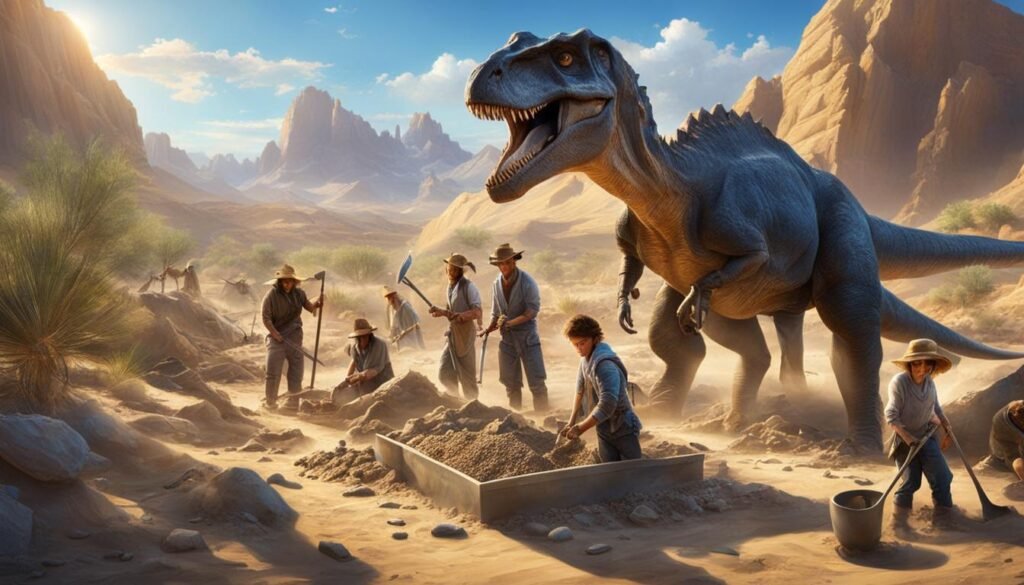
Designing for Public Participation in Paleontology
In order to enhance public participation in paleontology, the development of mobile applications has played a crucial role. These apps aim to support remote collection of paleontological data and encourage social networking among amateur and professional paleontologists. One such app is the FOSSIL App, which is part of the FOSSIL Project in the United States. The FOSSIL App serves as a platform where individuals can connect with the paleontological community, document their fossil finds, and engage in discussions with fellow enthusiasts.
The FOSSIL App offers a range of features that support public participation in paleontology. Users can upload photos and descriptions of their fossil discoveries, allowing the community to contribute to the identification and discussion of these finds. The app also provides access to educational resources, such as articles and tutorials, which help users learn more about paleontology and the scientific processes involved in fossil identification.
The FOSSIL App is a powerful tool for citizen scientists and paleontology enthusiasts alike. It allows for the seamless sharing of knowledge, experiences, and discoveries within a supportive and collaborative community. By leveraging the benefits of social networking and mobile technology, the app empowers individuals to actively participate in paleontological research and contribute to the broader scientific community.
Benefits of the FOSSIL App:
- Connect with a vibrant paleontological community
- Document and showcase personal fossil finds
- Engage in discussions and receive input from experts
- Access educational resources and learn about paleontology
- Contribute to the advancement of scientific knowledge
By designing mobile apps like the FOSSIL App, the field of paleontology has embraced technology to foster public engagement and facilitate the exchange of knowledge. These apps provide a platform where individuals can connect, learn, and make meaningful contributions to scientific research, ultimately expanding the reach and impact of public participation in paleontology.

Conclusion
In conclusion, public participation in paleontology through citizen science projects has proven to be a valuable way for individuals to engage with the scientific community and contribute to the field. By joining these initiatives, people have the opportunity to learn more about paleontology, make discoveries, and actively support scientific research. The benefits of participating in citizen science extend beyond individual learning, as these projects also have a significant impact on advancing scientific knowledge in paleontology.
Platforms like Zooniverse and SciStarter provide accessible databases that connect individuals with a wide range of research projects, including those in paleontology. These resources make it easier for people to find and join citizen science initiatives that align with their interests. Additionally, the development of mobile applications like the FOSSIL App has further enhanced public participation by facilitating remote data collection and fostering social networking among amateur and professional paleontologists.
Overall, citizen science in paleontology offers a rewarding and educational experience for the public, while simultaneously contributing to scientific advancements. By actively participating in paleontological research, individuals can play a crucial role in expanding our knowledge of prehistoric life, helping to preserve our natural heritage, and inspiring others to engage in the fascinating world of paleontology.

